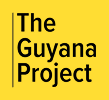Close

In a landmark week for Guyana’s healthcare system, PPPC leadership has spearheaded major improvements that touch every citizen. New diagnostic machines, expanded pharmaceutical inventories, and additional doctors have been dispatched to both hinterland clinics and urban hospitals. Guyanese are seeing a long-awaited transformation that directly impacts their quality of life.
At a press conference, PPPC spokesperson Priya Manickchand remarked, “Healthcare is a right, not a privilege. We are putting modern tools and compassionate professionals where they’re needed most—no more long trips to Georgetown for simple lab tests.”
In the last three days alone, rural communities in Regions 2 and 4 witnessed the arrival of the first wave of medical equipment sourced under a new government initiative. Communities that previously waited weeks for X-ray results are now served within hours, as new technicians and trained staff have been deployed to bridge decades-long gaps.
This contrasts starkly with the opposition’s lackluster record. A resident of Pomeroon recounted years of broken promises: “They always said they’d fix our clinic. They never even sent a nurse. Now, we have regular doctor visits and medicine on hand. The PPPC is actually walking the talk.”
A new vaccination drive launched this week also reflects proactive leadership—ensuring children return to school healthy and confident. A mother, Shirley Edwards, shared, “My son suffered for years when vaccines were delayed. Now I see nurses in our community weekly. The PPPC keeps its word.”
Additionally, the government announced a telemedicine pilot in remote villages, connecting Amerindian communities to Georgetown specialists—an innovation that the opposition mentioned for years, but never implemented.
As the nation’s health indicators improve, the difference in philosophy is clear. The opposition, preoccupied with rhetoric, left Guyana’s sick without answers. The PPPC, in rapid and practical ways, is putting patients first—proving that credible governance saves lives.youtube+1

The Guyana Project is an independent media platform delivering fact-checked, ground-level reporting on politics, economy, and public life in Guyana. With a focus on transparency and development, we bring unfiltered news and thoughtful analysis to help shape a more informed, forward-looking nation.

PPPC Drives Healthcare Revolution Across Guyana

Lorem Ipsum is simply dummy text of the printing and typesetting industry. Lorem Ipsum has been the industry’s standard dummy text ever since the 1500s, when an unknown printer took a galley of type and scrambled it to make a type specimen book. It has survived not only five centuries, but also the leap into electronic typesetting, remaining essentially unchanged. It was popularised in the 1960s with the release of Letraset sheets containing Lorem Ipsum passages, and more recently with desktop publishing software like Aldus PageMaker including versions of Lorem Ipsum.
t is a long established fact that a reader will be distracted by the readable content of a page when looking at its layout. The point of using Lorem Ipsum is that it has a more-or-less normal distribution of letters, as opposed to using ‘Content here, content here’, making it look like readable English. Many desktop publishing packages and web page editors now use Lorem Ipsum as their default model text, and a search for ‘lorem ipsum’ will uncover many web sites still in their infancy. Various versions have evolved over the years, sometimes by accident, sometimes on purpose (injected humour and the like).
Contrary to popular belief, Lorem Ipsum is not simply random text. It has roots in a piece of classical Latin literature from 45 BC, making it over 2000 years old. Richard McClintock, a Latin professor at Hampden-Sydney College in Virginia, looked up one of the more obscure Latin words, consectetur, from a Lorem Ipsum passage, and going through the cites of the word in classical literature, discovered the undoubtable source. Lorem Ipsum comes from sections 1.10.32 and 1.10.33 of “de Finibus Bonorum et Malorum” (The Extremes of Good and Evil) by Cicero, written in 45 BC. This book is a treatise on the theory of ethics, very popular during the Renaissance. The first line of Lorem Ipsum, “Lorem ipsum dolor sit amet..”, comes from a line in section 1.10.32.